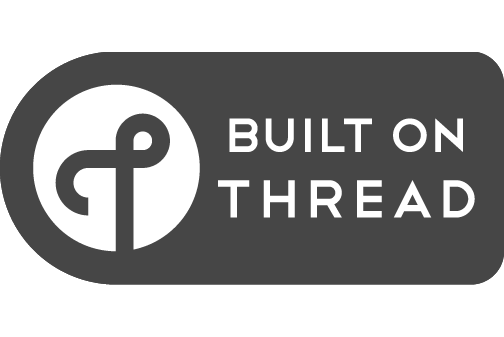What is the difference between Matter and Thread?
Matter and Thread. What are they in their simplest terms? How do they differ from one another? Do you need Thread to use Matter?

Please note: This page may contain affiliate links. Read our ethics policy
Matter and Thread are both new smart home standards, but they serve different purposes. Matter is a communication standard that allows smart home devices from different brands to work together seamlessly.
Thread, on the other hand, is a networking protocol that provides a reliable and efficient way for Matter devices to communicate with each other.
In simpler terms, Matter is the language that smart home devices speak, while Thread is the network they use to communicate.
Matter

Matter is a new smart home standard that is being developed by a consortium of over two hundred smart home device companies, including big names such as Amazon, Apple, Google, Phillips, and Samsung. Matter is designed to make it easier for consumers to connect and control smart devices from different brands, and to ensure that those devices are secure and interoperable.
Matter is based on the Internet Protocol (IP), which is the same protocol used for the web and other internet services. This means that Matter devices will be able to communicate with each other directly, without the need for a cloud hub or other intermediary. This makes Matter devices more secure and reliable, and it also gives privacy-minded consumers more control over their smart home data.
Matter devices can be controlled using a variety of different apps and platforms, including mobile apps, desktop apps, and even voice assistants.
Thread

Now let’s take a look at Thread. Thread is a low-power wireless networking protocol well-suited for smart home applications. It is based on the Zigbee protocol, but it offers a number of advantages, including improved performance, reliability, and security.
Thread is a mesh network protocol, which means that each device in the network can act as a router and repeater. This makes Thread networks very resilient to failures, and it also allows devices to communicate with each other over long distances.
Thread networks are also very secure. They use a variety of security features to protect against unauthorized access, including encryption, authentication, and authorization.
Relationship between Matter and Thread
Matter and Thread are complementary standards. Matter is a communication standard, while Thread is a networking protocol. Matter devices can use Thread to communicate with each other, but they can also use other networking protocols, such as Wi-Fi.
But if you’re looking for a good reason to use Thread for Matter devices, the advantages include the fact that it is low-power, reliable, and secure. However, Thread is not absolutely required for Matter devices.
Benefits of using Matter and Thread together
There are a number of benefits to using Matter and Thread together:
Security
Matter and Thread are both secure standards. Matter devices use IP encryption to protect their data, and Thread networks use a variety of security features to protect against unauthorized access.
Reliability
Matter and Thread are both reliable standards. Thread networks are resilient to failures, and Matter devices can continue to communicate even if the internet connection is down.
Interoperability
Matter and Thread are both interoperable standards. Matter devices from different brands can work together seamlessly, and Thread networks can be used to connect Matter devices to other IoT devices.
Ease of use
Matter and Thread are both designed to be easy to use. Matter devices will be automatically discovered and configured, and Thread networks will self-heal if a device fails.
Reduced complexity
Matter and Thread simplify the process of setting up and managing smart homes. With Matter and Thread, you will no longer need to worry about compatibility issues between different brands of devices.
Reduced costs
Matter is a royalty-free standard, which means that it is free for manufacturers to use. This is expected to lead to lower prices for consumers if participating companies are willing to pass those savings on.
Increased innovation
Matter is expected to spur innovation in the smart home market, as manufacturers compete to develop new and innovative Matter-compatible devices.
Sustainability
Matter devices are designed to be more energy-efficient than traditional smart home devices. This can help to reduce your energy consumption and save you money on your energy bills, which is a good thing with today’s international energy supply situation.
Privacy
Matter devices give consumers more control over their privacy. With Matter, you can choose which devices and services have access to your data.
Future-Proof
Matter is a future-proof standard. This means that Matter devices will continue to be compatible with new smart home devices and services that are released in the future.